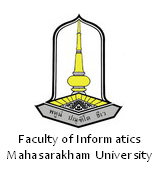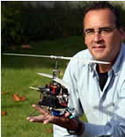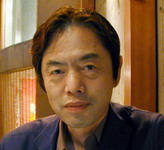miwai 2009
The 3rd Mahasarakham International Workshop on Artificial IntelligenceMahasarakham University, December 10-11 2009
| Introduction |
| Invited Speakers |
| Important Dates |
| Call for Papers |
| Submission and Publication |
| Registration |
| Program |
| Committees |
| Location |
| Travel and Accomodation |
| Contact |
|
Invited Speakers 1. Patrick Doherty (Linkoping University, Sweden)
Unmanned Aircraft Systems: A Future Technology
2. Ryohei Nakatsu (National University of Singapore)
Digital & Interactive Media and Their Future
Biography: Ryohei
Nakatsu received the B.S., M.S. and Ph.D. degrees in electronic
engineering from Kyoto University in 1969, 1971 and 1982
respectively. After joining NTT in 1971, he mainly worked on
speech recognition technology. In 1994, he joined ATR (Advanced
Telecommunications Research Institute) as the president of ATR Media
Integration & Communications Research Laboratories. In 2002
he became a professor at School of Science and Technology, Kwansei
Gakuin University. Since March of 2008 he is a professor at
National University of Singapore (NUS) and a director of Interactive
& Digital Media Institute (IDMI) at NUS. His research interests
include interactive media, entertainment technologies and communication
robot/agent. In 1978, he received Young
Engineer Award from the Institute of Electronics, Information and
Communication Engineers Japan (IEICE-J). In 1996, the best paper
award from the IEEE International Conference on Multimedia.
In 1999, 2000 and 2001, Telecom System Award from Telecommunication
System Foundation and the best paper award from Virtual Reality Society
of Japan. In 2000, the best paper award from Artificial
Intelligence Society of Japan. He is a fellow
of the IEEE and the Institute of Electronics, Information and
Communication Engineers Japan (IEICE-J). He is a member of
various academic societies such as IEEE, ACM, IEICE-J, the Acoustical
Society of Japan, Information Processing Society of Japan, Japanese
Society for Artificial Intelligence., and so on. Also he is a
chair of IFIP Technical Committee on Entertainment Computing.
|




